| |  | Beyond Resilience Five years ago Houston experienced Hurricane Harvey, the largest flood event in U.S. history. Harvey reminded us that our city is on the front lines of climate change, and we must reckon with our relationship with water. Our region’s identity is inextricably linked to water. Water informs our economy, politics, habitat, cultures, food, and leisure. Our namesake, Bayou City, is informed by our twenty-two watersheds and corresponding bayous, whose headwaters flow into the bay waters of Galveston Bay. Water can also be the catalyst for community transformation, but we must first reexamine our definition of resiliency. The word “resilience” comes from the Latin verb resilire, meaning to leap or spring back, rebound, or recoil. In the wake of human-made disasters such as Harvey, solutions around climate change often frame resiliency, but maybe this isn't enough. Is it our aim to bounce back? What are we returning to? Why can’t some communities or habitats bounce back in the same way? True resilience would mean addressing the root causes of the stressors in our watershed and communities — including lax attitudes toward land-use regulation, historic red-lining practices, and over-development of ecologically-sensitive wetlands, which soak up floodwaters and cleanse local water. We must see vulnerabilities caused by these stressors in our community and environment, and not simply aspire towards resiliency. Harvey provided fertile ground for the formation of new organizations, policies, planning, and programs, but we have to do more and reexamine resilience critically. For Our Waters & Community, Ayanna Jolivet Mccloud |
|
|
| |
|
| 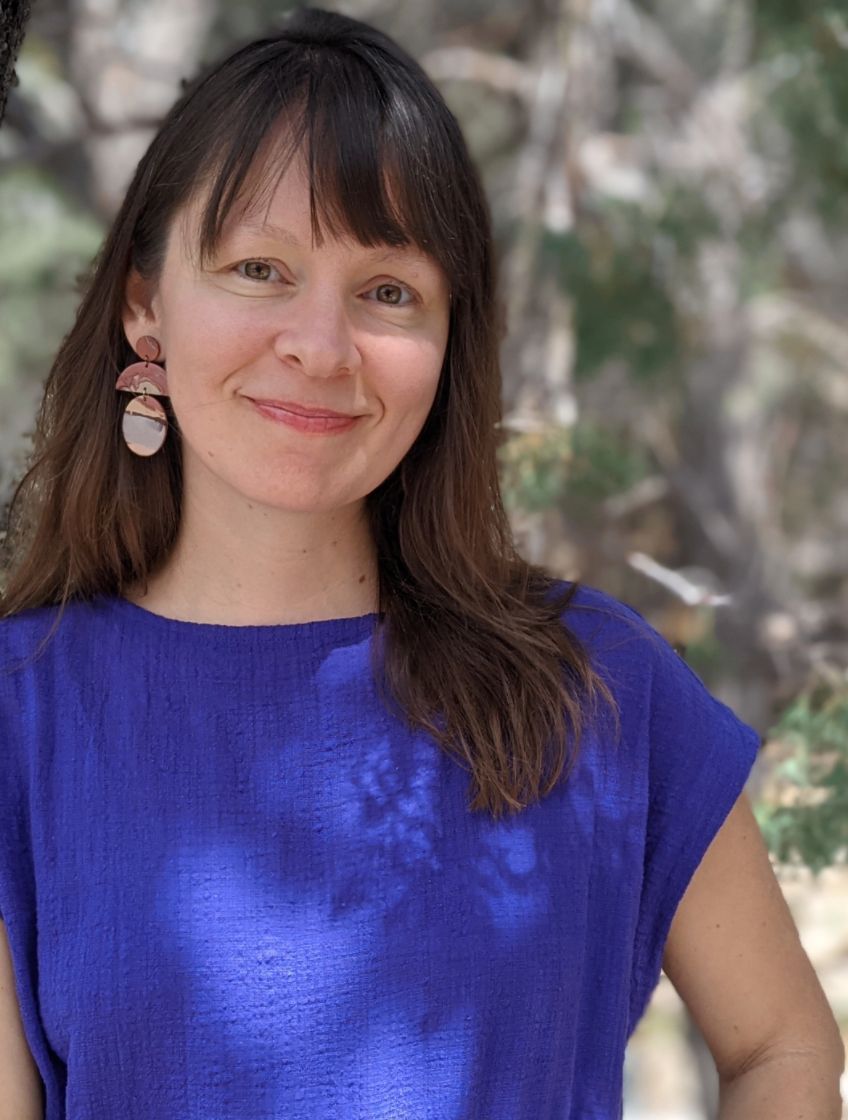 | From Our Legal Arm With San Francisco Baykeeper and the Waterkeeper Alliance, Bayou City Waterkeeper led efforts on behalf of 50 water advocates across the nation to file an amicus brief with the Supreme Court, urging the justices to affirm the broad scope of the federal Clean Water Act. The central question in Sackett v. EPA, which the Supreme Court will hear this October, is what standard should apply to determine protection for wetlands that are adjacent to traditional navigable waters and their tributaries. The petitioners initiating the appeal have asked the Supreme Court to overturn the Ninth Circuit’s ruling that adjacent wetlands, including those on their Idaho property, merit federal protection, which would advance a narrow interpretation of the Clean Water Act. Our amicus brief contends that to achieve the law’s objective, it must protect all waters that make up aquatic ecosystems, not just navigable waters. The court's decision will be especially important for our local wetlands. How our wetlands and natural systems are protected directly affects how safe we are from flooding, storm surges, and climate change. By co-leading on this brief, we aim for the Supreme Court justices to understand that the Clean Water Act is this region’s most important law for protecting our natural defenses, and it must remain strong and intact. This legal work complements our broader advocacy to push for protections for our region's wetlands, in the courts, through administrative processes, and with action-oriented, science-driven education. |
|
|
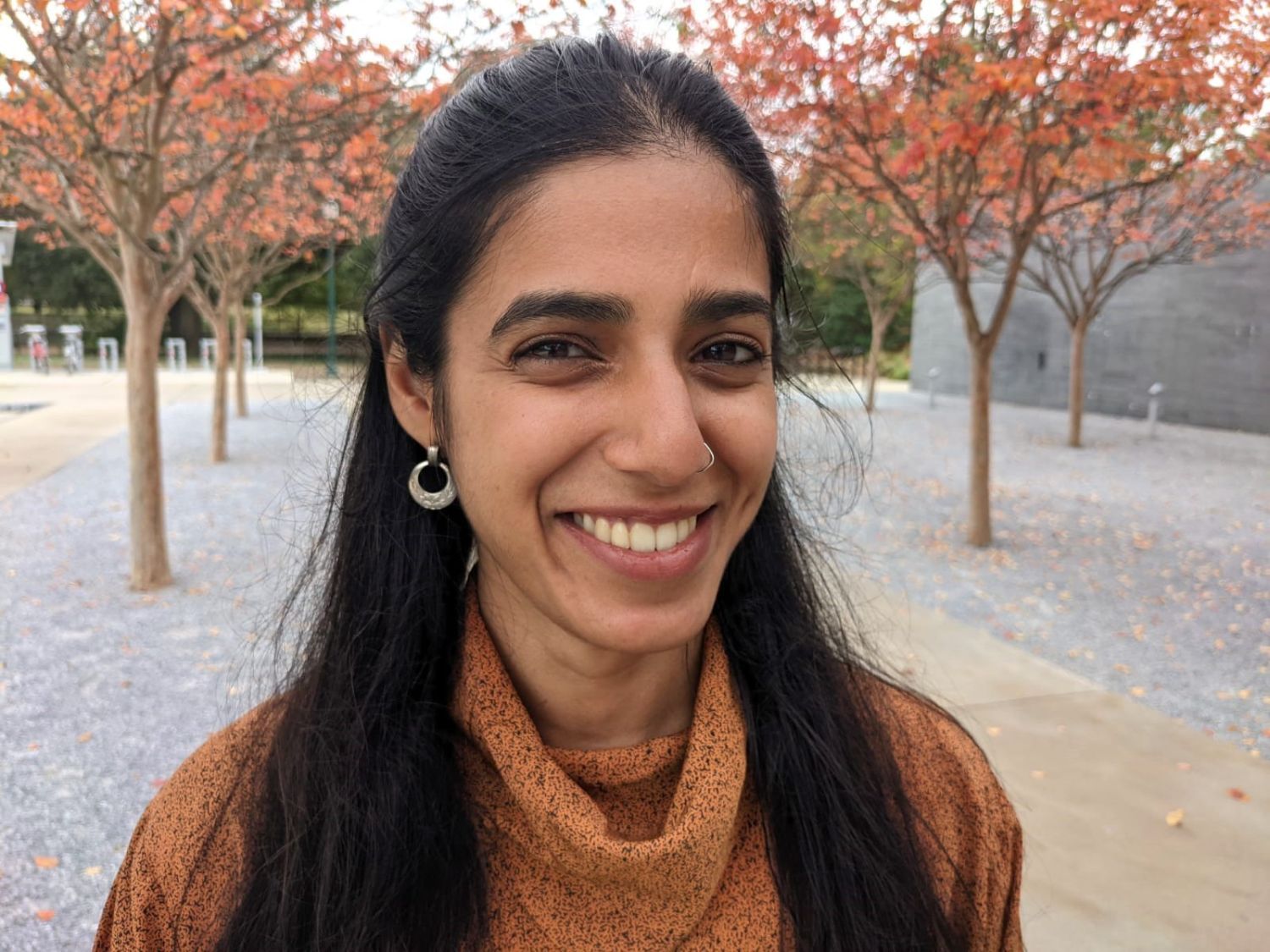 | From Our Science Arm As we commemorate five years of Hurricane Harvey, we remember all that was lost during the storm and aspire to build a resilient region, strengthening our vision for protecting our environment and our people for generations to come. While we recognize the permanence of the trauma that unfolded in the wake of Harvey, we also recognize the need to shift our vision for flood protection towards one that protects our region more holistically by integrating nature-based solutions, strengthening regulation and advocating for what we already have as one of our best defenses from flooding: our coastal prairie wetlands. As Houston continues to expand, we must learn to protect our coastal prairie and marsh wetland areas and truly recognize them for the value they offer. Bayou City Waterkeeper’s story map of our 5 Most Critical Wetland areas along with a wetland mapping app aim to create a sense of urgency and hope. We must be urgent in redefining our approach to flood protection and protect what we have left. Studies show as much as 30 percent of prairie wetlands have been lost in Harris county alone. Read more on the background of the launch of our 5 Most Critical Wetland areas story map and how to use the wetland mapping tool. |
|
|
| | 5th Anniversary of Hurricane Harvey Bayou City Waterkeeper Launches 5 Most Critical Wetland Areas Story Map and Tool |
| |
|
|
|
| Five Most Critical Wetlands Story Map |
| 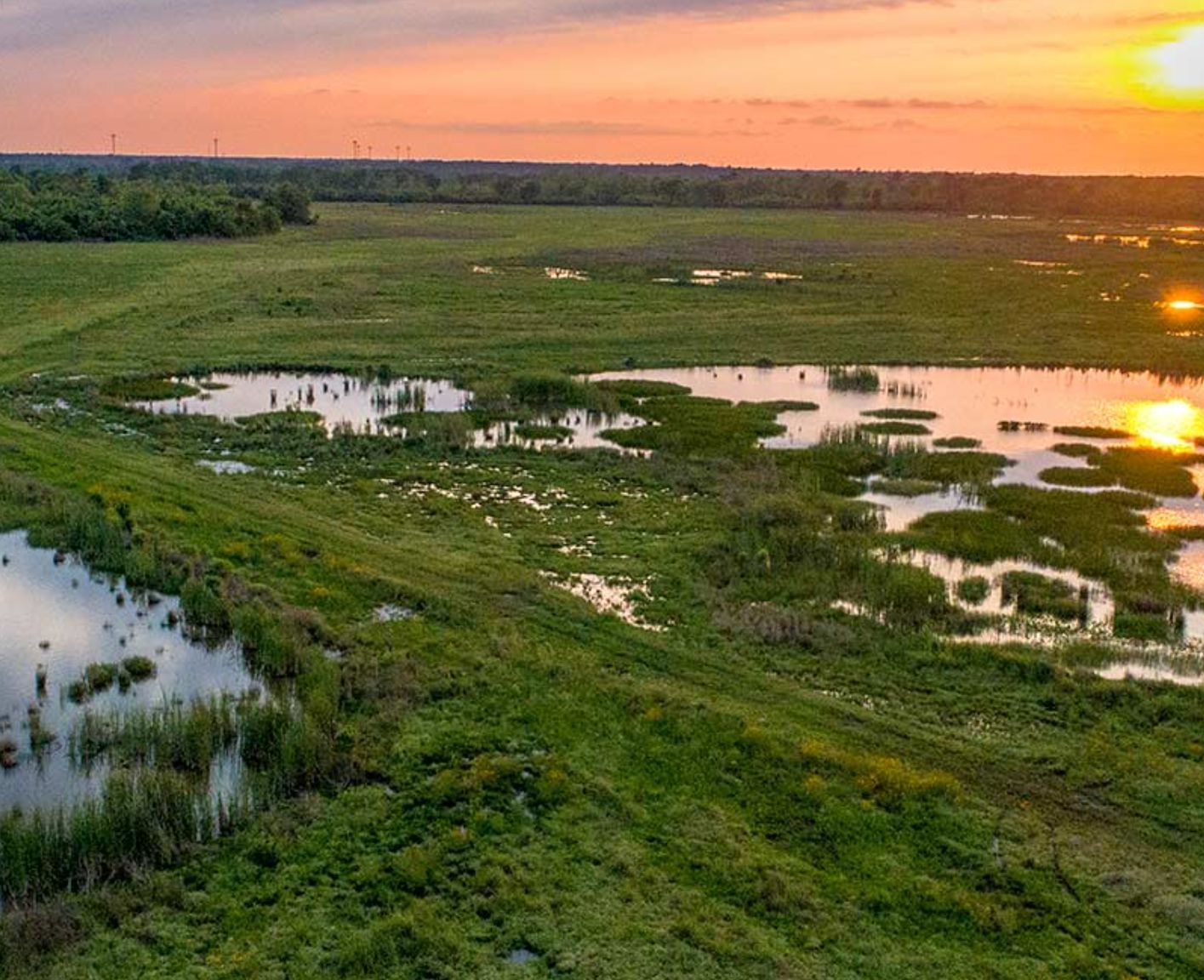 | As our region grapples with how to address increasingly larger and more intense storms and rising sea levels, protecting our remaining wetland areas at the highest risk of loss due to development and other reasons, becomes ever more important. Created in collaboration with Rice University's Spatial Studies Lab and Diluvial Houston, this story map illustrates the diverse ecosystems and wetlands in our region that are in need of protection. It lays the foundation for why conserving wetlands is critical especially in a post-Harvey environment, as they serve as one of nature’s best line of defense against flooding. Utilizing ecologic layers based on aerial imagery to identify large tracts of land in the Lower Galveston Bay watershed, we aim to identify and protect our critical habitats and our Texas coastal prairie wetland areas. |
| | | Ike Dike: Who Gets to Decide the Shape of Our Coast |
| 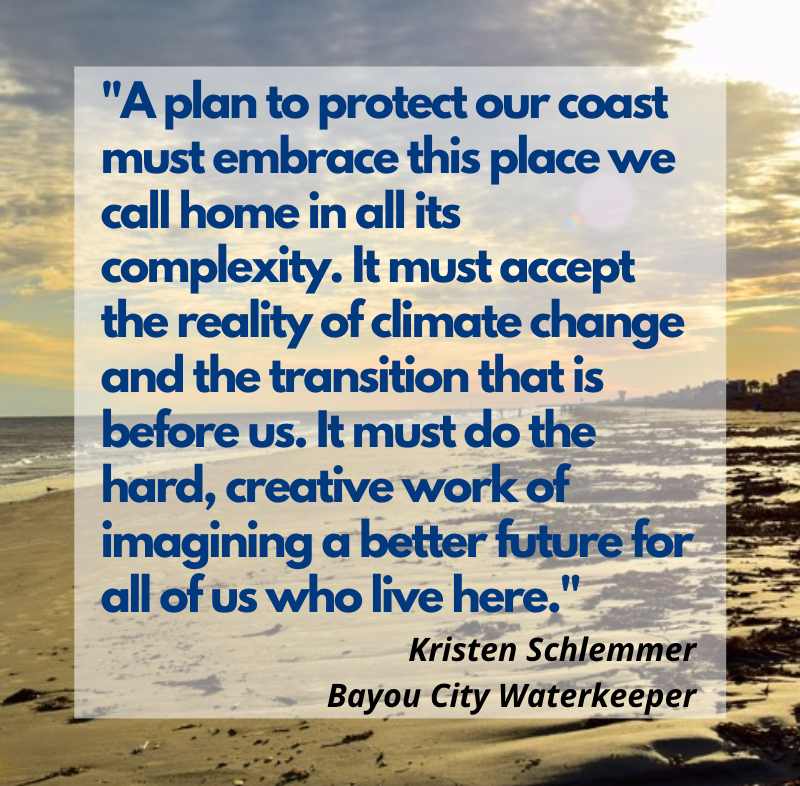 | A recent virtual meeting on July 22, entitled "Who gets to decide the future of our Texas coast?," features Danielle Goshen of National Wildlife Federation. The presentation is intended to help our community understand the role of different decision-makers with power over the $31 billion Ike Dike proposal. To follow this work and learn of future meetings, complete this form. |
| | | | 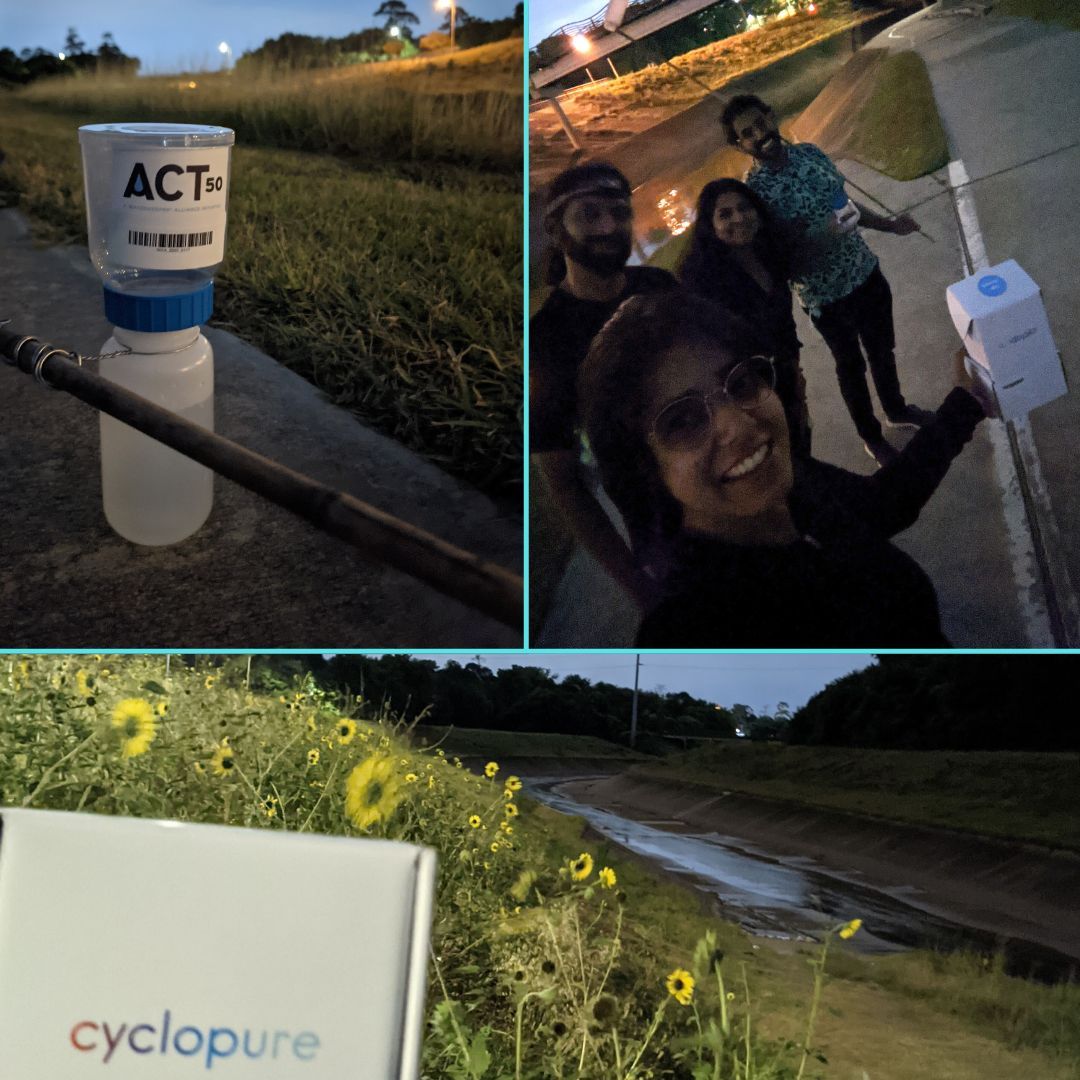 | Bayou City Waterkeeper recently collected water samples as a part of Waterkeeper Alliance's comprehensive PFAS (per/polyfluoroalkyl substances) contamination survey. PFAS are a group of emerging contaminants linked to harmful effects to public health and the environment. Learn more about PFAS contamination and WKA efforts here. We collected our samples along white oak bayou and enjoyed a night walk and sunflowers along the bayou. |
| | | Meet our Summer and Fall Fellows |
| 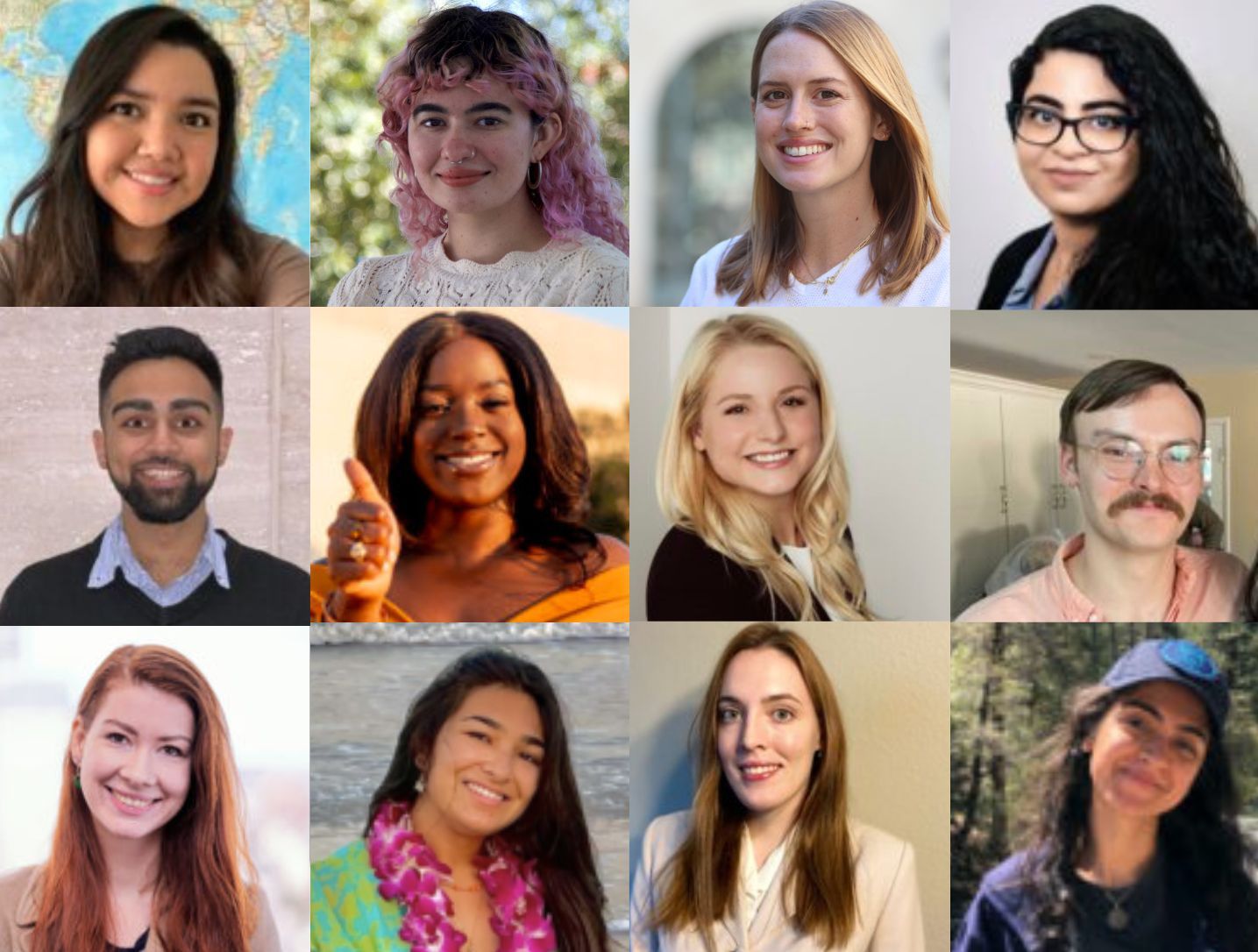 | Join us in welcoming our fall fellows and interns and saying goodbye to our summer fellows and interns! Throughout the year Bayou City Waterkeeper hosts law, policy, and science fellows and interns to help with our research, investigation, and analysis of issues affecting water quality, wetlands, and resilience to flooding and climate change across the greater Houston-Galveston region. This summer and fall we welcomed first new fellows including in the field of water policy, cultural strategies, and microplastics. |
| |
|
New Wetlands Mapping Tool |
| 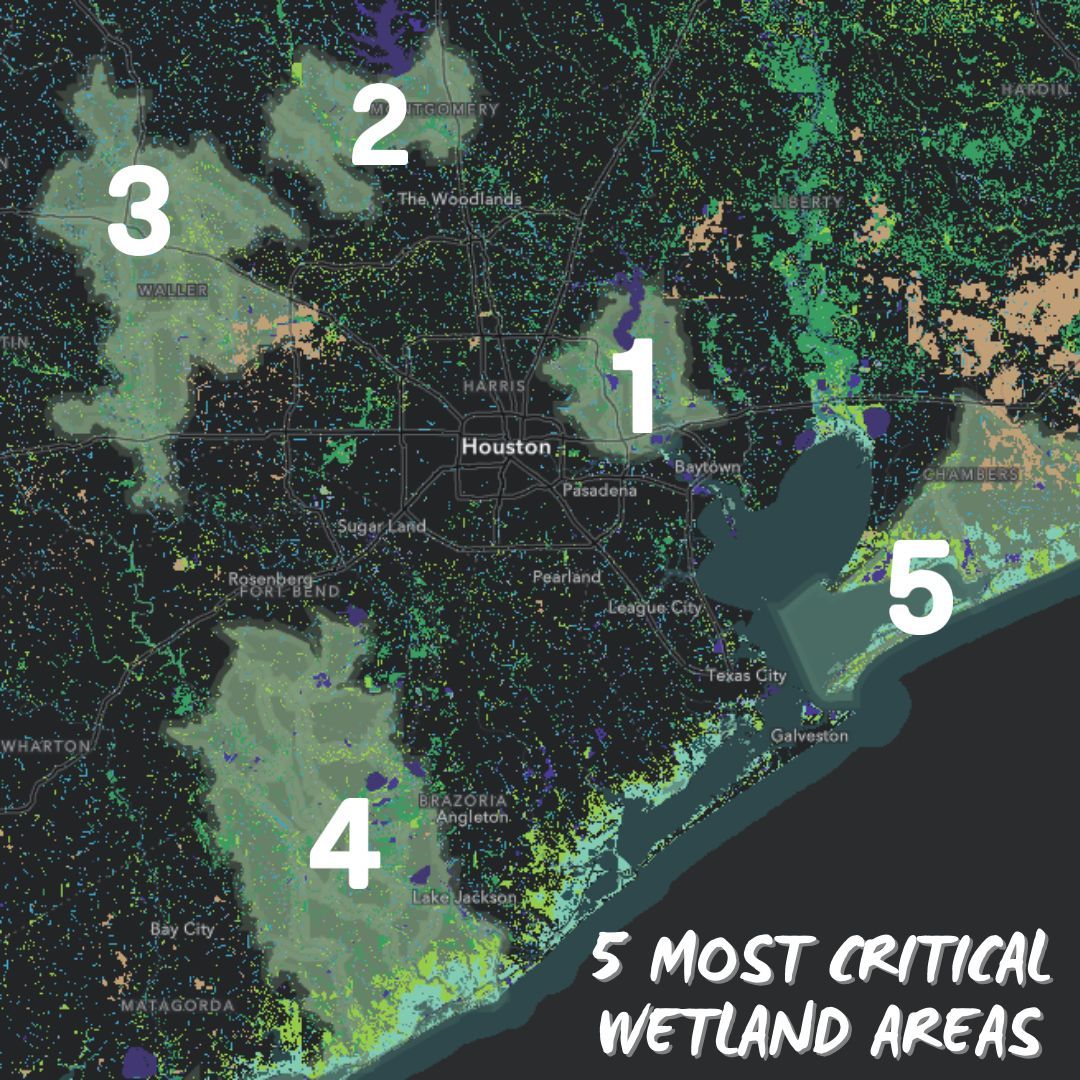 | In addition to defining our critical wetland areas, Bayou City Waterkeeper has created a wetland mapper. This wetland mapper is a tool meant for community members to identify wetlands throughout our watershed, understand the delicate relationship between wetlands, our bayous and our waterways and to advocate for the protection of these wetlands from future losses. Created in collaboration with Rice University's Spatial Studies Lab and Diluvial Houston, this tool allows community members, advocacy groups, and organizations like ours to quickly identify wetland impacts in our region and support our effort to conserve our critical wetland areas from further degradation and losses. Learn how to use the tool. |
| | | Monitoring Sewage: Monthly Poo Reports |
| 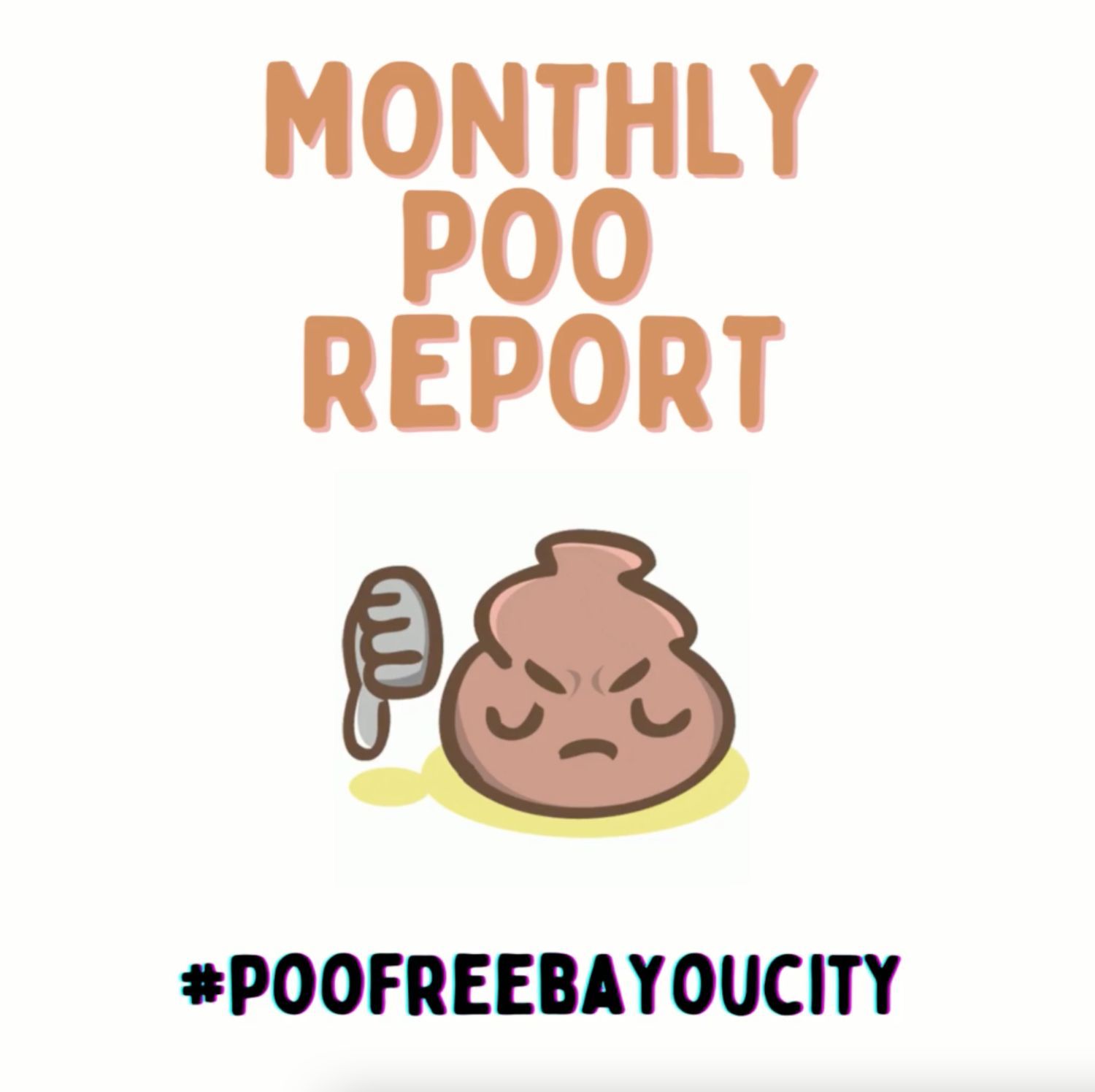 | Bayou City Waterkeeper’s monthly Poo Report monitors the City of Houston’s compliance with the consent decree, requiring COH to make $2 billion in upgrades to its sanitary sewer system over the next 15 years. Our Monthly Poo Report helps you see how the city's investment is (or is not) making a difference across Houston. The latest report shows that we still have a problem. The city reported 55 overflows in June representing 28,718 gallons of raw sewage entering neighborhoods and bayous over 30 days. Also, check out our Justice in the Sewers data mapping tool tracking sewage pollution in Houston through consent decree-mandated reports, alongside U.S. Census Bureau data reflecting income and race or ethnicity. |
| | | Danielle Garcia, Our Water Justice Specialist |
| 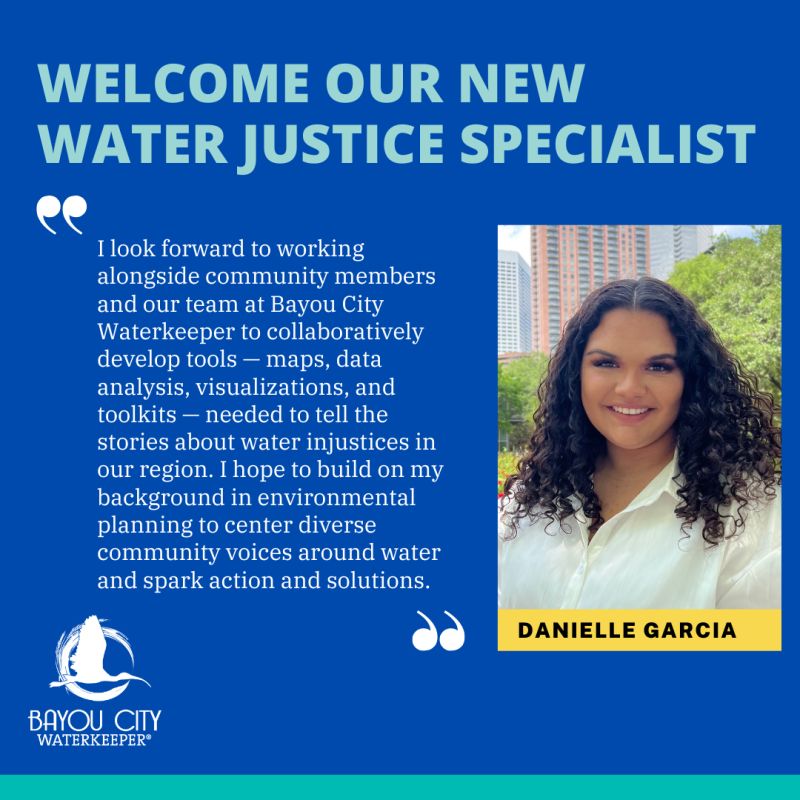 | Join us in welcoming our Water Justice Specialist, Danielle Garcia, who started with Bayou City Waterkeeper this spring. Learn more about her background and role in this brief interview on our blog. Danielle is working with our team to advance water justice, infrastructure justice, flood equity, and just climate transitions through mapping, data analysis, visualizations, strategic communications, and community outreach. |
| | | Recommended Reading: Annual Report for Community Flood Resilience Task Force |
|  | Bayou City Waterkeeper believes in uplifting community voices in flood resilience, as seen in the work of the Community Flood Resilience Task Force (CFRTF), which our Community Science Manager Mashal Awais is Vice Chair. The CFRTF submitted their first annual report to commissioners court identifying a vision to understand past flood risk investments and current vulnerabilities, transform traditional community engagement into community-driven solutions, invest in nature-based solutions, and use collaborative, data-driven (qualitative and quantitative) approach in implementing projects and policies. Read more here |
| |
|
|
|
| | Tributary Event this Spring |
| 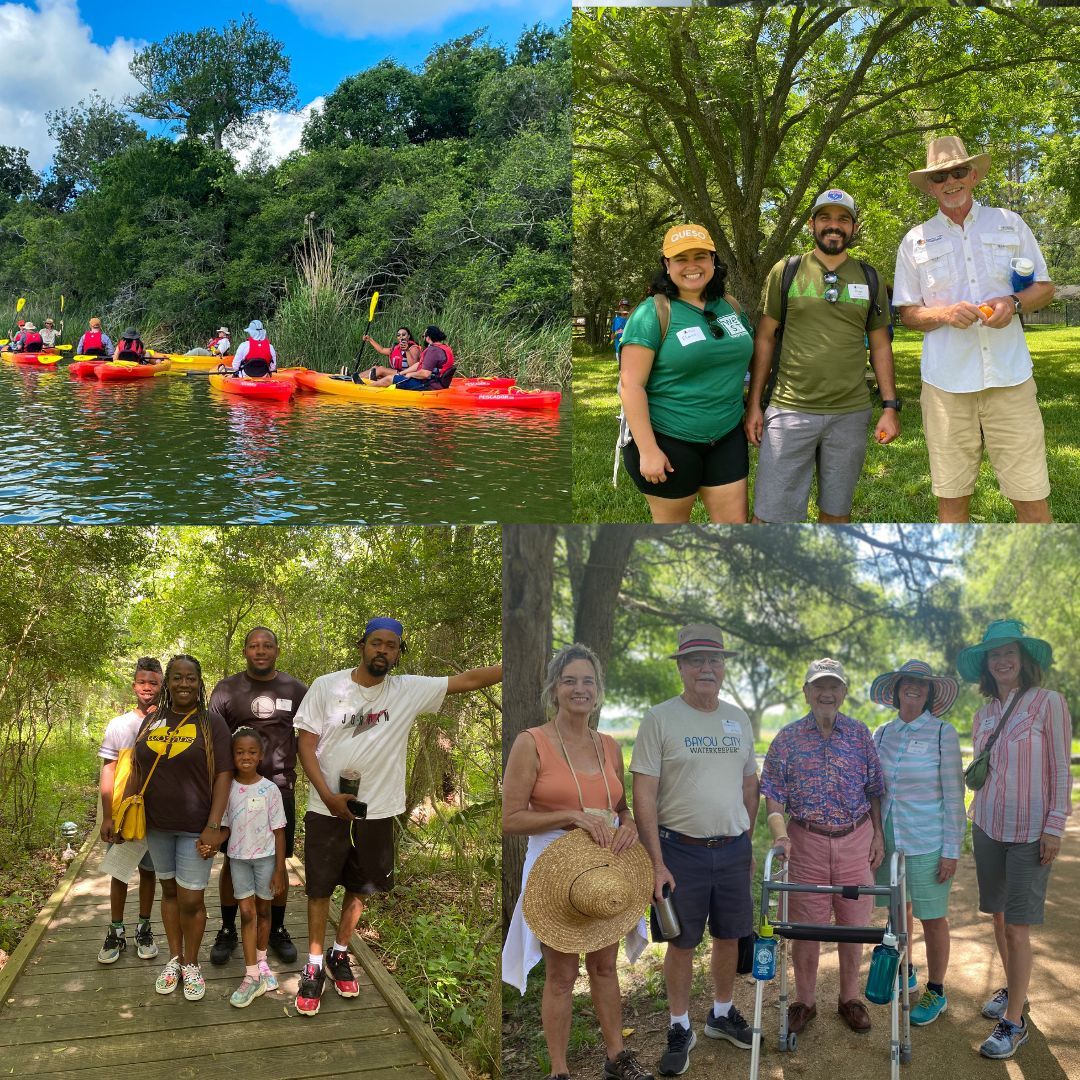 | Tributary was a community event connecting to and honoring our waterways and communities we advocate for. Learn about our waterways and water justice in our region. The event will take place at Armand Bayou Nature Center where attendees can explore the Center’s wetlands, bayou, and prairie habitats through guided hikes, kayaking, and pontoon tours. We will also learn of the histories of the Akokisa people who previously inhabited this watershed. |
| | |
|
| Connect With Us info@bayoucitywaterkeeper.org
www.bayoucitywaterkeeper.org | |
|
| | | |
|
|